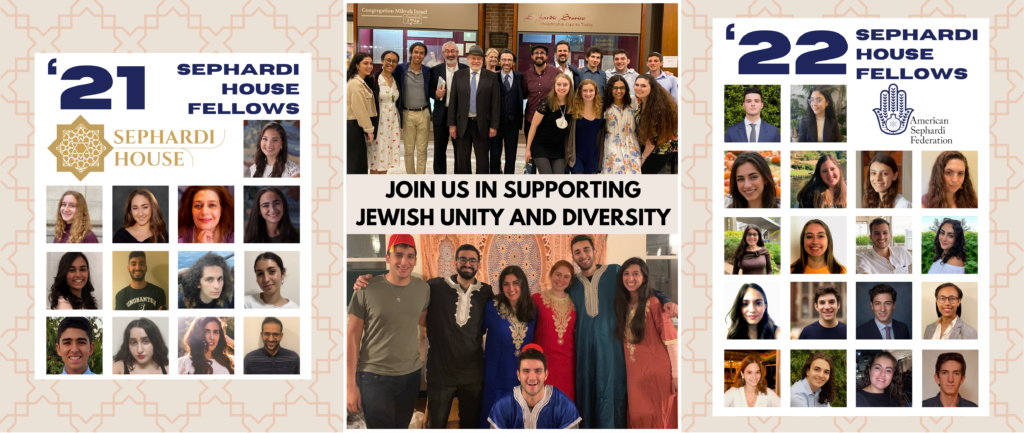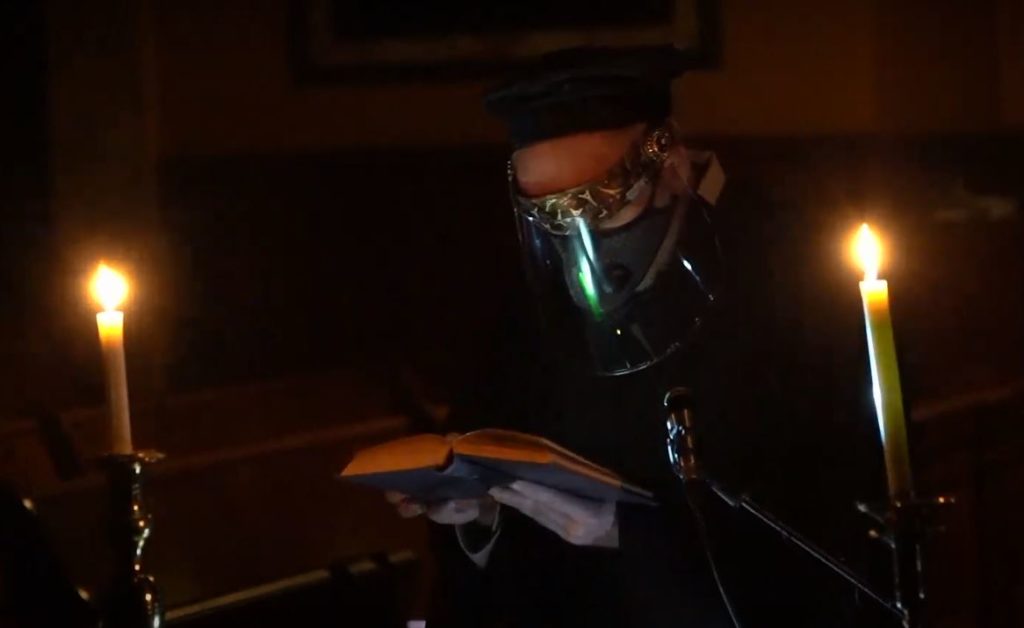Overcoming Disunity & Destruction: Thoughts for the 9th of Av


!תזכו בנחמת ציון ובבניין ירושלים
From your friends at
The American Sephardi Federation
In remembrance of Tish’a B’Ab, the ASF’s Sephardi World Weekly is pleased to present the following “Letter from the Land of Israel”:
The recent attack by religious zealots on a Bar Mitzvah ceremony at the Western Wall demonstrates that the age-old lazy tendency to see life through reductive categories and baseless hatreds remains a serious problem for the Jewish people. The 9th of Av, a fast day commemorating the destruction of the Second Temple (and other calamities of Jewish history), provides a helpful opportunity to meditate on the problem through a traditional and highly relevant perspective.
The Jewish tradition has thought long and hard about sinat chinam, baseless hatred. The sages teach (Yoma, 9b) that the second temple was destroyed because of sinat chinam. They also teach that the same generation characterized by sinat chinam learned Torah, observed the commandments and engaged in acts of lovingkindness. In other words, the sages understood that piety and sinat chinam, baseless hatred, can be mutually complementary. We shouldn’t be surprised. The sages knew that religion is a problematic power. After all, they also taught that the Torah can be either an elixir of life or a death potion (Yoma, 72b).
We know from ancient and modern historians, as well as the Talmudic sages, that the Second Temple period was characterized by political extremism and factionalism. The Jewish zealots ultimately set the tone for the rebellion against the Roman Empire. The sages claim that the extremists burned twenty-one years’ worth of provisions and engineered a famine in order to set the national agenda (Gittin, 56a). Unsurprisingly, that agenda led to disunity, destruction, and dispersion.
How can we understand the existence of intolerant, uncompromising political zealots who learn Torah, perform the Mitzvot (commandants), and engage in acts of loving-kindness? We have a similar phenomenon in our own times: intolerant, uncompromising zealots for Political Islam (Islamism) who engage in charitable activities while hunting down those who don’t conform to their ideas and ideals. This was the condition of the Jewish people 2,000 years ago, and we’re still feeling the effects today.
How so? Rabbi Bahya ben Asher (1255-1340, Spain) helps us understand the character of the problem of sinat chinam by portraying its destructive consequences and offering a picture of the healthy alternative (See Cad ha’Kemach, Sinat Chinam).
Continue reading below…
~~~~~~~

ASF’s Sephardi House is an innovative national movement for college students that seeks to infuse the wisdom, diversity, creativity, and warmth of the Sephardic spirit into Jewish student life—while also advancing Jewish unity, vitality, and pride on campus. Sephardi House’s mission is especially critical in this current time, as we face a proliferation of antisemitism, BDS, alienation, and divisive ideologies on campus.
Join us in addressing these challenges by supporting Sephardi House’s work of celebrating Jewish diversity, cultivating Jewish unity and continuity, as well as deepening love of the Jewish People and Israel.
Sponsorship & Naming opportunities available:
~~~~~~~
Sinat chinam is, according to R’Bahya, “when a person hates his fellow for no reason.” To be more precise, sinat chinam is when a person hates his fellow for no reason that is actually connected to the other person. The object of sinat chinam, the one who is hated, might have some wonderful qualities. Sinat chinam, however, makes the hater unreceptive to those qualities because it originates in an arrogant desire to enthrone one’s view as dominant:
Sinat chinam separates. People’s opinions are different and they do not share the same understanding. Everyone has his own opinion, and nobody is perceived to be superior to one’s self. No one recognizes anyone else as greater, while everyone wants to lead…
Disconnected from reason at its root, sinat chinam branches out into various limited perspectives that fight for power and control. In other words, sinat chinam gives birth to and feeds political factionalism. R’Bahya adds that a person suffering from sinat chinam, wanting to dominate and unable to recognize the legitimacy of alternative perspectives, will sustain his sense of superiority through lies and distortion:
Sinat chinam is a severe sickness… It causes the hater to lie about his fellow… and one who habitually lies is counted among the groups that cannot receive the Divine Presence, as it is said (Tehillim 101:7), “He that speaks lies shall not be established before My eyes.”
What’s the alternative? While sinat chinam deeply insinuated itself into the sinews of Jewish history, R’Bahya teaches that it never penetrated to the core of Jewish life. The deeper, abiding reality remains the idea and experience of love and national unity, both of which are reflections of Divine unity:
There is no nation as fitting for love to be fixed within them and for the attribute of hatred to be foreign to their experience as Israel. Our God is one, as it’s written, “Have we not all one father? Has not one God created us?” (Malachi 2:10) And we are one nation, as it is said, “Who is like you Israel, one nation in the land?” (2 Samuel 7:23).
Even though, as the sages taught, piety and sinat chinam can feed each other, R’Bahya reminds us that beginning with Divine unity, the elixir of life that sees all of reality as animated by a Divine source, enables our national existence to be animated by love instead of baseless hatred, even if the disagreements between us are deep and long-lasting. However, so long as there are Jewish groups that consider other Jewish groups to be illegitimate because they don’t conform to their views, even though any rational observer can see that these other groups possess good qualities – “Haredim!” “Liberals!” et al. − we are still suffering from sinat chinam, baseless hatred.
The American Sephardi Federation wishes our readers a meaningful 9th of Av. This year, we invite you to participate in R’Bahya’s elevated spirituality by thinking a little bit (or a lot) about the good qualities of Jewish individuals and groups whose views differ from one’s own. Cultivating a “good eye” strengthens Jewish unity, and as R’Ben Zion Meir Hai Uziel (1880-1953) emphasized in his Spiritual Will to the Jewish People:
“Love truth and peace,” for divisiveness and schism are the most dangerous enemies. They eat away at the house of Israel and cause its bones to rot. By contrast, peace and unity are the eternal foundations for the national existence of the house of Israel, may it never fall. These are the pillars upon which the house of Israel is founded for all time; they are conduits of blessing, sources of bounty, and the vehicle of the Jewish people’s courage and might.
“May we merit in the consolation of Zion and the reconstruction of Jerusalem.”
The American Sephardi Federation

~~~~~~~
For further reading and listening:
Western (Spanish & Portuguese) Sephardi Tisha B’Av Kinot & Readings
The morning service of Tish’a b’Ab in the Western Sephardic tradition includes more than 25 different elegies (kinot). These are sung to an amazing variety of beautiful and moving melodies. In 2020, in the tradition of the Global Nação’s Azharot, Bendigamos and the ASF Institute of Jewish Experience presented a first-of-its-kind global event featuring:
Hazan Eliot Alderman (London)
Rabbi Jonathan Cohen (Netivot)
Rabbi Shalom Morris (London)
Hazan Dr. Peter Nahon (Bordeaux/Paris)
Rabbi Natan Peres (Jerusalem)
Hazan Nachshon Rodrigues Pereira (Amsterdam)
Elad Zigler (Jerusalem)

Fast of Ab Services at Shearith Israel, followed by a Special Rabbi Soloveichik Lecture

The Fast of Ab services as conducted at Shearith Israel (The Spanish & Portuguese Synagogue of New York) are uniquely dramatic and moving. The service is conducted in a darkened sanctuary. The traditional Western Sephardic melodies chanted for the Book of Lamentations and for the Kinot (elegies) are incredibly beautiful and emotionally moving. In most years large crowds fill the room for an experience that is unlike any other. In 2020, with the help of the American Sephardi Federation, Shearith Israel’s Fast of Ab services, together with a special lecture by Rabbi Meir Soloveichik, were presented via live-stream from the sanctuary.
“Spies & Sensibility: Envisioning Excellence on Tish’a B’Ab”

(Image courtesy of the State of Israel/Youtube)
R’ Uziel teaches us that the higher purpose of Jewish life is deeply tied to a full expression of human excellence. On the 9th of Ab we remember that realizing this vision requires clarity about the purpose itself and faith—confidence might be a better term—in our capacity to fulfill it, even if we face some of our deepest fears along the way.
The Kotel Decision: A Sephardic Jew Responds
R’ Daniel Bouskila argues why “no barriers separating people at the Kotel.” The ideal situation is “to restore the Kotel to what it once was: an open place for all Jews to come pray and meditate as individuals.”
~~~~~~~

The American Sephardi Federation invites all individuals, communities, and organizations who share our vision & principles to join us in signing the American Sephardi Leadership Statement!
Please also support the ASF with a generous, tax-deductible contribution so we can continue to cultivate and advocate, preserve and promote, as well as educate and empower!
~~~~~~~
Banner Image Credit: “Birkat Kohanim” (Image courtesy of Alex Levin)
~~~~~~~